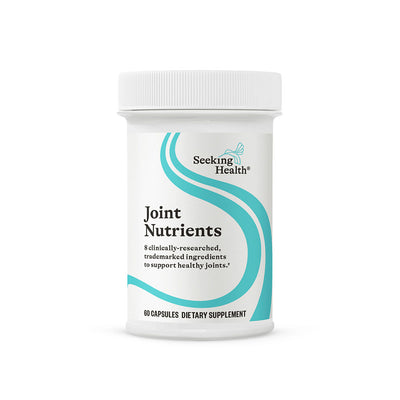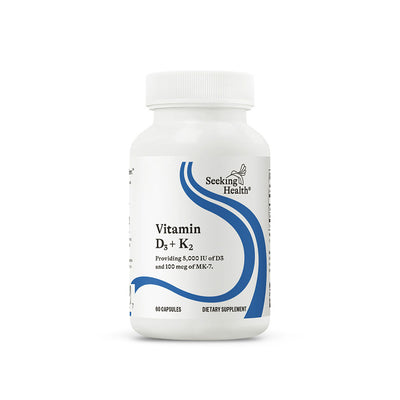TL;DR: The liver is a vital organ responsible for detoxification, digestion, and storing nutrients. If it's not functioning properly, symptoms like jaundice, itchy skin, dark urine, fatigue, weight loss, and swollen legs might appear. Common causes include alcohol, poor diet, lack of exercise, and certain medications. To support liver health, stay hydrated, eat a balanced diet, exercise, limit alcohol, and get vaccinated against hepatitis. Nutrients like Vitamin E, Omega-3, and Zinc also play a role in maintaining a healthy liver.†
Your liver is your body's unsung hero. It performs a myriad of crucial functions, from filtering toxins to aiding in digestion. It works tirelessly to maintain your overall health and well-being.
Despite its strength, your liver is not immune to damage. Various lifestyle factors and underlying health conditions pose significant risks. Understanding the signs and symptoms of liver problems is essential. It helps you proactively approach liver health. Learning about the seven common symptoms of an ill-functioning liver will shed light on their underlying causes. You'll gain insights into how to support liver health to live your best healthy life.
Your Liver 101
Your liver is the largest organ in your body. It's tucked away inside your belly, right under the lower part of your ribcage on the right side. Your liver has two main parts: the right and left lobes, with the right being much larger than the left. It's held in place by several ligaments. It is connected to essential parts of your body, like the gallbladder, which sits just under it, along with parts of the intestines and pancreas. These connections help your liver do its job of keeping you healthy by performing several vital functions:(1)
- Filtering toxins by removing toxins and waste products from the blood.
- Metabolizing nutrients by converting nutrients from your food into essential blood components.
- Storing vitamins and minerals by holding onto crucial vitamins and minerals for later use.
- Producing bile, which helps with digestion.
- Processing glucose by removing it from your bloodstream and storing it as glycogen for use later on.
- Regulating amino acids for the production of proteins.
- Regulating blood clotting by producing proteins necessary for blood to clot.
- Detoxifying chemicals by breaking down potentially harmful chemicals the body intakes.
- Regulating cholesterol by converting excess cholesterol into bile acids so it can be eliminated from your body.
- Supporting immune function by removing bacteria from the blood, supporting the immune system.
Your liver is also a very resilient organ and has the amazing ability to regenerate itself. This means that even if part of the liver gets damaged or removed, it can regrow to its full size and continue working. However, repeated damage to the liver, like from excessive alcohol consumption or unhealthy habits, can lead to permanent scarring and damage.

What Are 7 Signs of Liver Problems?
Your liver is designed to let you know when it needs attention. While you may not always recognize the signs at first, it's critical to understand what they are. This clarity can help you talk with your healthcare practitioner immediately to begin addressing them.
There are seven signs that may signal problems with your liver:(2)
Yellowing of the Skin and Eyes
This condition is called jaundice, and it makes you look more yellow than usual. In severe cases, it also makes the whites of your eyes look yellow.
Itchy Skin
Your skin may be very itchy for seemingly no reason and without a rash. You may feel like you constantly want to scratch, and nothing you do will take away that feeling.
Dark-colored Urine
Your urine should be very pale yellow. However, if you are having liver problems, your urine may be much darker, and no matter how well-hydrated you are, it doesn’t seem to help.
Light-colored Stool
The standard stool color ranges from various shades of brown to almost black. If yours looks gray or clay-like, your liver may not be working properly.
Swelling In the Legs and Ankles
A poorly functioning liver can cause fluid build-up, which makes your shoes feel tight.
Constantly Feeling Tired and Weak
It’s normal to occasionally feel tired. But if you haven’t been working excessively hard or haven’t missed sleep and feel excessively tired and even weak, it may be your liver trying to tell you it’s not well.
Losing Weight Without Trying
Losing weight is good, especially if you think you need to. However, your liver may be the culprit if you haven't been trying to lose, and the weight is coming off anyway.
In addition to these seven symptoms, you may also feel tender or even pain in your abdomen around your liver.
What Causes Liver Problems?
Unhealthy lifestyle habits, illnesses, and environmental factors that can hurt your liver:
- Drinking Too Much Alcohol: Consuming a lot of alcoholic beverages can severely harm your liver by causing conditions like alcoholic liver disease and cirrhosis, a condition when the liver slowly deteriorates and is unable to function normally.(3)
- Eating Unhealthy Foods: A high-caloric diet filled with unhealthy fats, sugars, and processed foods may lead to liver problems such as fatty liver disease.(4)
- Being Inactive: Not getting enough exercise can increase your risk of developing liver diseases.
- Being Overweight: Carrying extra weight, especially around your waist, can harm your liver.
- Smoking: Using tobacco products can increase the chance of getting liver cancer and fatty liver disease.(5)
- Exposure to Chemicals: Coming into contact with harmful chemicals like cleaning supplies and pesticides can damage your liver.(6)
- Viral Infections: Hepatitis viruses like hepatitis A, B, C, D, and E can inflame, infect, and damage your liver.
- Medications: Certain medications, such as NSAIDs, antibiotics, antiepileptics, statins, antifungals, immunosuppressants, and methotrexate, which are used to treat cancer and autoimmune diseases, can be toxic to the liver.(7)
- Genetic Conditions: Some liver issues can be passed down in families due to genetics, including hemochromatosis, Gilbert's Syndrome, and Alpha-1 Antitrypsin deficiency.(8)
- Autoimmune Diseases: Sometimes, the body’s immune system mistakenly attacks the liver, causing damage. These autoimmune liver diseases include autoimmune hepatitis, primary biliary cholangitis, and primary sclerosing cholangitis.(9)
How Can You Support Liver Health?

It's crucial to consider making lifestyle choices that support healthy liver function and protect it from damage. This proactive approach to liver health is especially important because many problems only show symptoms once they are advanced. Getting a handle on your liver's health now supports it so it can continue to do the heavy lifting for years to come.
Supporting liver health is easier than you might think. All you need to do is start practicing some good, healthy habits, including:(10)
- Staying Hydrated: Drinking enough water daily helps support healthy liver and kidney function.
- Limiting Alcohol and Avoid Toxins: Too much alcohol can harm your liver, so it's best to drink in moderation or not at all. You also want to avoid repeat exposure to harmful chemicals in cleaning and aerosol products.
- Eating a Balanced Diet: Consuming lots of fruits, vegetables, whole grains, and lean protein can support liver health by providing the nutrients your liver needs to support its healthy function.
- Exercising Regularly: Staying active has been shown to support liver health along with other healthy lifestyle practices.(11/a>)
- Getting Enough Sleep: Sleeping 7-9 hours each night supports your overall health, including your liver.
- Maintaining a Healthy Weight: Being overweight can lead to fatty liver disease, which harms the liver.
- Practicing Safe Sex: This helps prevent hepatitis B and C, viruses that can cause liver damage.
- Getting Vaccinated: Vaccines for hepatitis A and B are essential for preventing these infections that can harm the liver.
What Nutrients Support Liver Health?

Liver health is crucial for our overall well-being. Eating the right foods with the proper nutrients, in addition to healthy lifestyle practices, supports healthy liver function.
| Which Nutrient? | What Does It Do? | Which Foods Have It? |
| Vitamin E† | Vitamin E has antioxidant properties that support healthy oxidation processes. It also supports healthy liver detoxification processes.† | Nuts and seeds like sunflower and almonds, leafy greens like spinach, vegetable oils like sunflower, and fruits like avocados. |
| Omega-3 Fatty Acids† | Omega-3 fatty acids help support healthy inflammatory responses and liver health. They also support the healthy processing of fats so they don't build up in the liver.† | Walnuts, flaxseeds, oily fish like salmon, plant oils like canola, and fruits like berries, oranges, and papaya. |
| Vitamin C† | Vitamin C has antioxidant properties that support liver health and healthy detoxification processes.† | Bell peppers and fruits like oranges, strawberries, and kiwi. |
| B12 and Folate† | B vitamins generally support liver health, but B12 and folate are essential. They support the liver's detoxification processes and normal healing if it becomes damaged.† | Beef, liver, whole grains, and dark green vegetables like kale and spinach.(12) |
| Selenium† | Selenium has antioxidant properties that support the liver and its detoxification abilities.† | Brazil nuts, tuna, eggs, sunflower seeds, red meat, and organ meat. |
| Zinc† | Zinc supports healthy fat, protein, and carbohydrate metabolism in the liver and the healthy metabolization of medication.† | Beef, pumpkin seeds, lentils, oysters, oats, beef, and blue crab.(13) |
| Vitamin D† | Vitamin D supports healthy immune and inflammatory responses, gene expression, and fat metabolism.(14)† | Eggs, mushrooms, red meat, liver, and fatty fish like mackerel.(15) |
| Turmeric† | Turmeric supports healthy inflammatory and oxidation responses, liver detoxification, and lipid metabolism.(16)† | Turmeric is used in many flavorful foods, including those from South Asia, the Middle East, East Africa, and the Caribbean. |
| CoQ10† | CoQ10 supports healthy liver enzyme levels, inflammatory responses, and lipid metabolism processes.(17)† | Organ meats, nuts, and fatty fish like tuna. |
| Choline† | Choline supports healthy liver cell function, methylation reactions, and neurotransmitter production, which is involved in bile secretion.(18)† | Beef liver, eggs, soybeans, chicken breast, and potatoes.(19) |
Seeking Health’s Liver Support Supplements
Seeking Health has developed several liver support supplements that support healthy detoxification processes and the healthy metabolizing of hormones, chemicals, and medications. Our liver support supplements also contain nutrients like turmeric, vitamin C, vitamin E, CoQ10, dandelion root, selenium, choline, and vitamin D, all supporting healthy liver function.†
- Liver Nutrients is an all-in-one liver support dietary supplement that offers Phase 2 liver detoxification support, glutathione production support, and liver cell function support.†
- Calcium D-Glucarate contains 250 mg of calcium D-glucarate, a form of glucaric acid that is stabilized with calcium to support your body’s healthy natural detoxification function.†
- Optimal PC provides a high-quality source of choline from phosphatidylcholine (PC) to support healthy cell walls, liver, and brain.†
- Optimal Glutathione Plus contains selenium to support your body’s healthy use of glutathione and healthy detoxification pathways.†
The Bottom Line

Taking good care of your liver is crucial because it plays a huge role in keeping you healthy. The liver helps clean your blood, digest food, and fight off infections. If it's not in good shape, your body can't work as it should, making you feel sick or leading to serious health problems. Just like you care for your heart or lungs by eating right and exercising, your liver deserves the same attention. Making healthy choices can help your liver do its job much better, and this can mean feeling more energized and getting sick less often.
Remember, a happy liver means a healthier you!
References:
- https://columbiasurgery.org/liver/liver-and-its-functions
- https://www.mayoclinic.org/diseases-conditions/liver-problems/symptoms-causes/syc-20374502
- https://pubmed.ncbi.nlm.nih.gov/31536239/
- https://pubmed.ncbi.nlm.nih.gov/25389901/
- https://pubmed.ncbi.nlm.nih.gov/29664906/
- https://pubmed.ncbi.nlm.nih.gov/31873887/
- https://medlineplus.gov/ency/article/000226.htm
- https://liverfoundation.org/liver-diseases/rare-disease/
- https://liverfoundation.org/liver-diseases/autoimmune-liver-diseases/
- https://liverfoundation.org/resource-center/blog/13-ways-to-a-healthy-liver/
- https://pubmed.ncbi.nlm.nih.gov/33898961/
- https://ods.od.nih.gov/factsheets/Folate-HealthProfessional/
- https://ods.od.nih.gov/factsheets/Zinc-HealthProfessional/
- https://pubmed.ncbi.nlm.nih.gov/25544877/
- https://www.hsph.harvard.edu/nutritionsource/vitamin-d/
- https://pubmed.ncbi.nlm.nih.gov/37178581/
- https://pubmed.ncbi.nlm.nih.gov/37324909/
- https://ods.od.nih.gov/factsheets/Choline-HealthProfessional/
† These statements have not been evaluated by the Food and Drug Administration (FDA). This product is not intended to diagnose, treat, cure, or prevent any disease.












